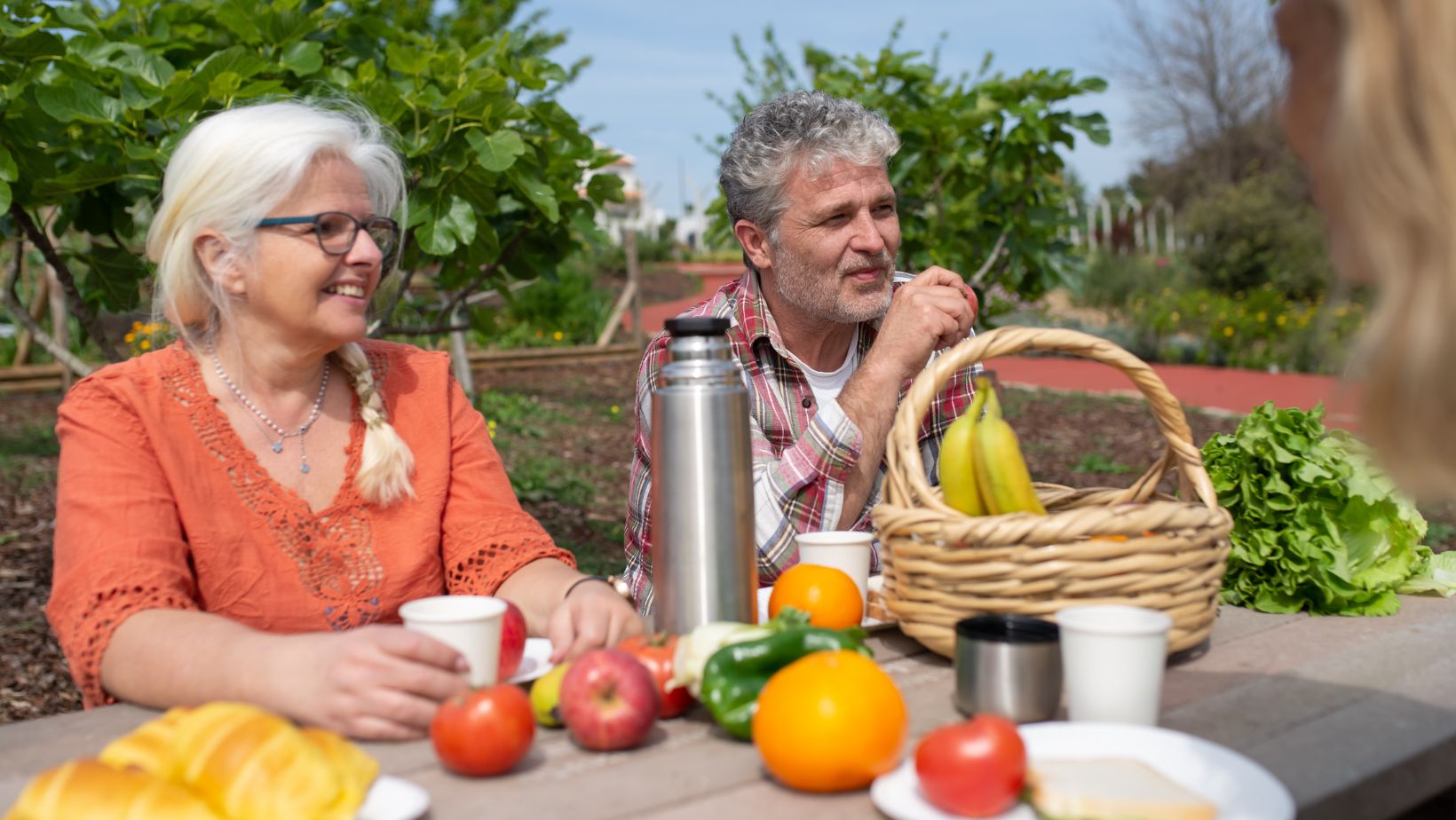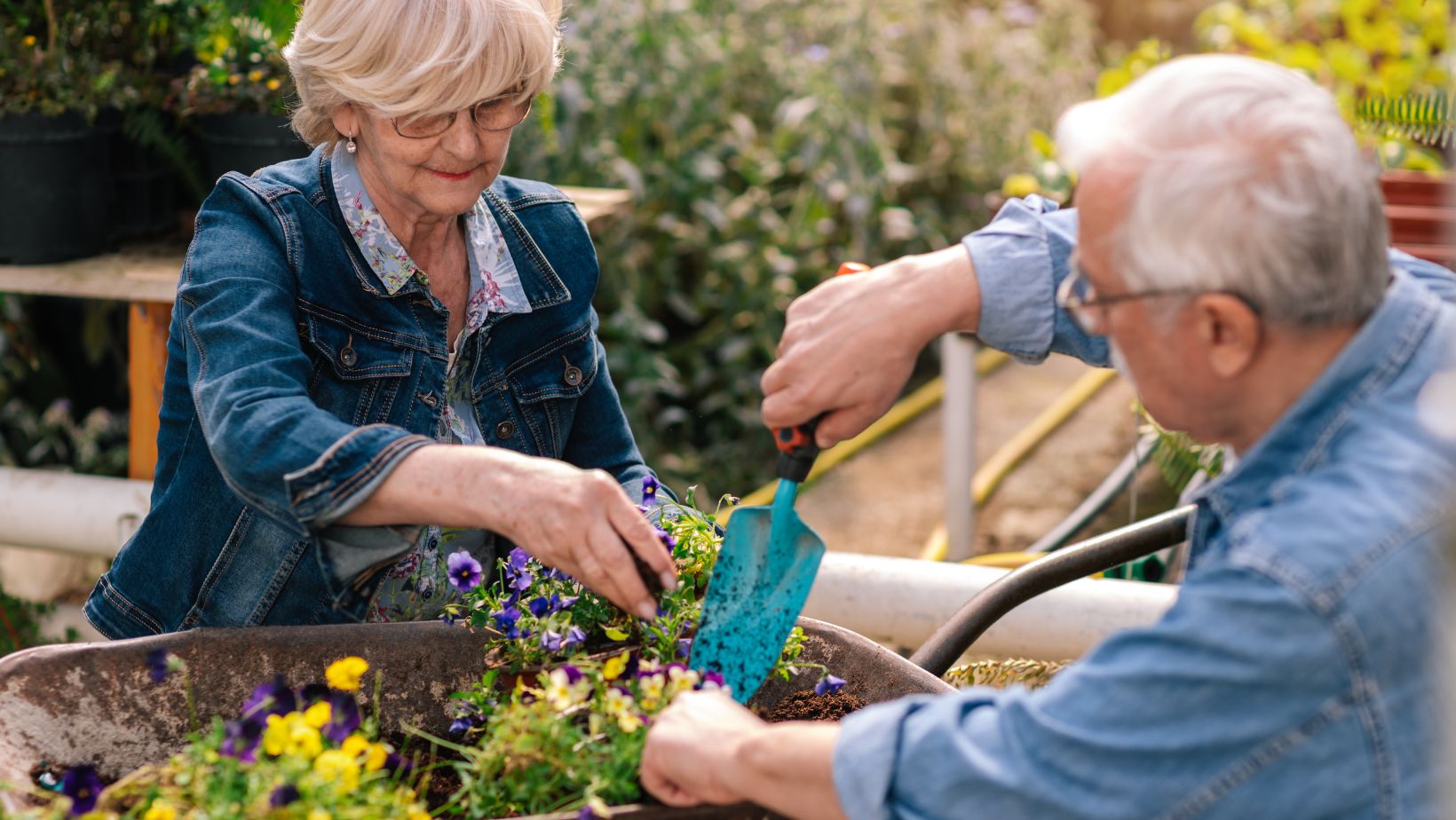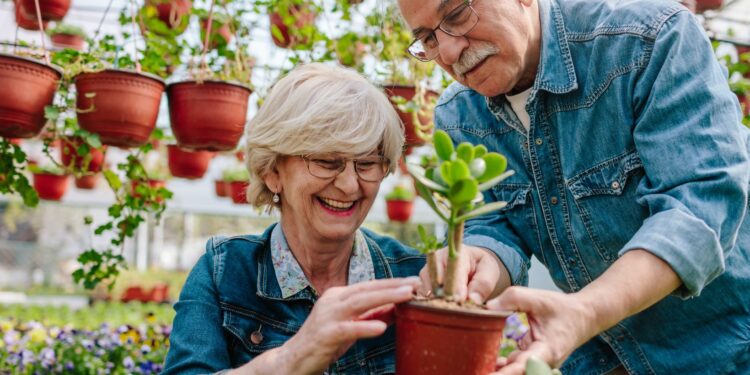For many seniors, especially those navigating limited mobility or disabilities, finding accessible and meaningful ways to stay active and engaged can be challenging. However, one enriching and therapeutic activity continues to grow literally and figuratively in popularity: gardening. More than just a hobby, gardening has emerged as a powerful form of self-care that promotes emotional well-being, cognitive stimulation, and a sense of purpose. And one of the most rewarding (and beautifully simple) ways to get started is by growing avocado trees.
With their lush, tropical appearance and compatibility with container gardening, avocados offer seniors a unique opportunity to create peaceful, therapeutic garden spaces that enhance mental health and foster emotional resilience, all without the physical strain often associated with traditional gardening.
The Deep Roots of Gardening and Mental Health
Numerous scientific studies highlight the positive impact of gardening on mental health. Gardening has been shown to reduce cortisol levels (a stress hormone), improve mood, and even decrease symptoms of depression and anxiety. For older adults, especially those facing isolation, retirement transitions, or chronic health conditions, cultivating plants offers a structured, rewarding way to stay emotionally balanced and mentally sharp.
Engaging with plants also supports mindfulness, the act of being present in the moment. Whether it’s feeling the soil, watching leaves unfurl, or noticing subtle growth changes, gardening offers seniors a meditative rhythm to their day. These sensory experiences can be grounding, especially for individuals with memory loss or cognitive challenges.
Gardening offers a nurturing outlet for emotional expression, especially for seniors facing difficult life transitions such as grief or end-of-life conversations. The calm, reflective nature of tending to plants can help process emotions and foster meaningful connections. When supporting a loved one during hospice, it’s just as important to understand what to say to someone in hospice to provide comfort and reassurance. Whether through a shared garden moment or a gentle conversation, simple acts of presence and empathy can profoundly uplift someone’s spirit during their final chapter.
For seniors with disabilities, avocado gardening offers the same therapeutic benefits without demanding strenuous physical labor, making it both accessible and emotionally enriching.
Delicious Fruits and Veggies That Thrive in Your Garden
Growing your own plants can be a rewarding gardening endeavor, especially if you live in a warm climate with well-drained soil. For example, while avocado trees take patience and space, they yield delicious, nutrient-rich fruit that’s perfect for everything from guacamole to smoothies. But avocados aren’t the only garden-worthy produce.
Other fruits and vegetables that thrive in home gardens include tomatoes, which are surprisingly easy to grow in containers or raised beds and are produced abundantly with enough sunlight. Strawberries are another backyard favorite, offering sweet, juicy berries and beautiful ground cover. For those looking for versatility and quick harvests, zucchini and cucumbers are excellent choices; they grow fast, require minimal maintenance, and produce generously. Bell peppers and carrots are also beginner-friendly and add vibrant color and nutrition to your garden and meals alike.

By growing a mix of these fruits and vegetables, gardeners can enjoy a more sustainable lifestyle, save on grocery bills, and enjoy the unbeatable taste of freshly picked produce straight from their backyard.
A Gentle Routine for Emotional Resilience
Gardening offers structure, an often-overlooked element of mental health. For retirees, especially those who may no longer have rigid schedules, the gentle routine of checking on plants, watering, or cleaning leaves helps restore a sense of time and purpose. Avocado gardening fits beautifully into a weekly rhythm:
- Watering (1–2 times per week)
- Light pruning or wiping leaves (as needed)
- Monitoring light exposure or rotating the pot
- Noting growth and changes
These simple tasks create a peaceful, ongoing dialogue with nature, one that rewards presence and patience over perfection.
For seniors dealing with loss, trauma, or long-term illness, this consistent, low-pressure engagement can be grounding. It’s not just about watching a plant grow; it’s about witnessing and participating in a quiet, life-affirming process.
Just as financial planning and medical considerations are essential for retirees with disabilities, incorporating accessible and therapeutic activities like gardening can offer more than leisure; it can become a core part of a lifestyle that supports mental wellness, daily engagement, and a sense of control.
Designing a Garden Space That Soothes the Soul
Creating a healing garden space doesn’t require a sprawling backyard. Even a small corner near a window or on a sunny patio can become a sanctuary. For seniors, especially those using wheelchairs or walkers, intentional design can transform any space into a relaxing, accessible retreat.
Key Elements for an Accessible, Mental Health-Friendly Garden:
- Raised Plant Stands: Elevate containers to reduce the need for bending or reaching. This minimizes physical strain while allowing easy interaction with the plants.
- Lightweight Containers on Wheels: Choose pots with built-in wheels or use rolling plant caddies. These make it easy to reposition plants without heavy lifting—perfect for following the sun throughout the day.
- Self-Watering Pots and Moisture Meters: Simplify daily care with tools that reduce guesswork. These features help seniors with memory issues or limited dexterity confidently maintain their plants.
- Stylish Decor: Use ceramic or terracotta pots in calming colors like sage, cream, or sky blue. Add decorative pebbles, solar-powered lights, or mosaic tiles to bring joy and personality to the space.
- Companion Plants: Introduce calming herbs like lavender, basil, or mint to add fragrance and tactile variety. Mixing textures and scents enhances sensory engagement, which can be especially beneficial for individuals with sensory processing or memory-related conditions.

This type of design not only makes gardening more accessible but also turns it into a deeply comforting, sensory-rich experience that supports emotional well-being every step of the way.
The Therapeutic Power of Watching Growth
One of the most fulfilling aspects of avocado gardening is the slow, visible transformation of the plant. While it may take a couple of years for a tree to bear fruit in a container, new leaves, thickening stems, and subtle color shifts are meaningful milestones.
This slow growth encourages seniors to value the journey over the destination, an emotionally healthy mindset that promotes gratitude, resilience, and optimism. Each new leaf can feel like a small victory, each day of care like an investment in something alive and thriving.
And should the plant eventually produce fruit, the satisfaction is doubled; homegrown avocados become not just a healthy snack but a symbol of time, care, and patience well spent.
Nature’s Gentle Therapy
Avocado gardening is more than a hobby; it’s a mental wellness tool disguised as a leafy companion. For seniors living with disabilities, mobility challenges, or simply looking for a deeper sense of peace and purpose, gardening offers therapeutic benefits that enrich daily life in profound ways.
From boosting mood and reducing stress to fostering creativity and nurturing a sense of connection, growing an avocado tree offers an accessible, beautiful way to stay mentally and emotionally well. Whether it sits beside a window or blooms on a sun-drenched patio, an avocado tree brings the calming power of nature home, one leaf at a time.














Discussion about this post